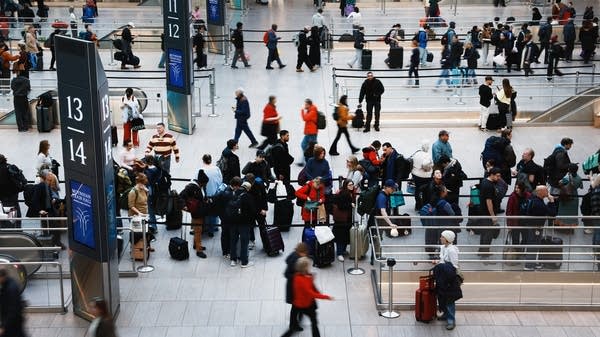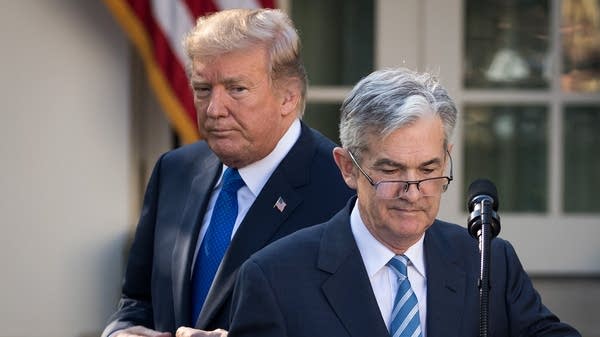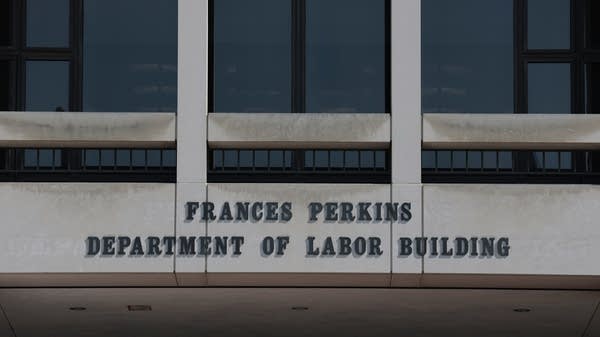The drawbacks of an increasingly cashless society
“Once you get into the credit economy … you start getting exposed to hidden fees, penalties, identity theft, and it also induces overbuying,” says Ralph Nader.

Carrying cash can be a pain — those of us old enough may remember the pennies and nickels piling up in a small dish on the dresser or maybe the dirty look from the cashier at the corner store when all you've got for that pack of gum is a $20 bill.
But let's consider some of the more hidden downsides that come with widespread card and smartphone transactions. A new report from the Center for Study of Responsive Law finds cashless transactions chip away at customer autonomy.
Longtime consumer advocate Ralph Nader is the nonprofit's founder and is author of the new book “Civic Self-Respect.” He joined “Marketplace Morning Report” host David Brancaccio for a chat about the costs of going cashless. The following is an edited transcript of their conversation.
David Brancaccio: You and your team want us to know that this shift to go cashless also has its own costs.
Ralph Nader: For sure. Once you get into the credit economy and you got a credit score collar around you, intimidating, complaining, you start being exposed to sky-high interest rates for unpaid balances, you start getting exposed to hidden fees, penalties, identity theft, and it also induces overbuying; you get stuck in a credit cycle. There are trillions of dollars, as you know.
Brancaccio: You want to use a debit card. You don't want to borrow money for the transaction. You see a system set up for that that individuals don't really understand, but also may not have had much of a role in shaping.
Nader: That's right. They're lured by visions of convenience, of course. You know, just swipe or hit a button. And then this convenience is transformed by these omnipresent fine print contracts into exploitation, into gouging, into invading privacy. And you try to get through to these banks, insurance companies, your state legislature, city council person, member of Congress, federal agencies, because you got complaints and what do you hit? Robotic voicemail. So it's a closing out of the voice of the consumer — which, after all, is the greatest pillar of our economic activity and well-being. And I think it ought to be raised to that level of personal freedom, control over your own money, control over your own personal data.
Brancaccio: We get disclosures, either in the mail or online, that talk about what the fee structure should be if we do a cashless transaction. I suppose how this all works, that information is available to us if we look.
Nader: No, it's very difficult. There are all kinds of hidden fees, overcharges, penalties. I mean, you know, you can't keep up with it. Let's face it, the sellers are very skilled, and buyers, you know, they have other things on their mind. They're trying to raise their families. They don't have the skill level to deal with the maneuvers, deceptions.
Brancaccio: As you talk about the system set up to make cashless easier, and how it can disadvantage some consumers, you must still share the concern that portions of the population are unbanked and it's nearly impossible to build, say, generational wealth, if you can't get financial services.
Nader: Exactly. And being unbanked is usually a function of poverty, and that has to be addressed. We should have postal banking reinstated after it was abandoned. So there are remedies, but we have to have a broad consumer consciousness to get these remedies in the public dialogue.













